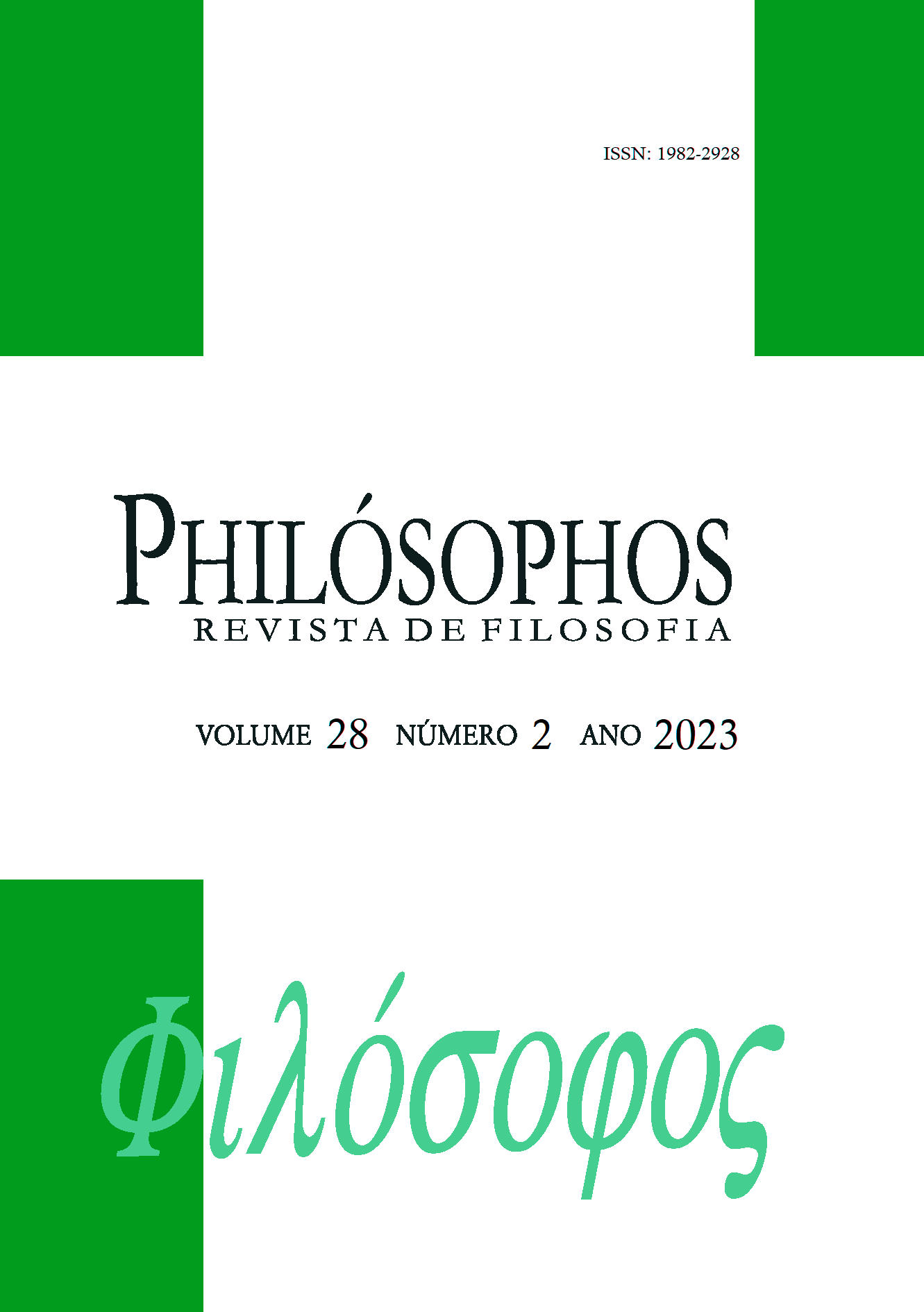Oyèrónkẹ́ Oyěwùmí e as filosofias esc(r)utáveis da cosmologia e instituições socioculturais Oyó-Iorubás
DOI:
https://doi.org/10.5216/phi.v28i2.76986Keywords:
Oyèrónkẹ́ Oyěwùmí; Cosmologia e Instituições Socioculturais Oyó-Iorubás; Cosmopercepção; Senioridade; Ensino de Filosofia.Abstract
This article seeks to listen to the thought of the yorùbá philosopher Oyèrónkẹ́ Oyěwùmí, that changes our understanding of African cultures, notably in relation to race and gender. Oyèrónkẹ́ Oyěwùmí by pointing out that prior to British colonization the Ọ̀yọ́-Yorùbá society of southwestern Nigeria was not organized around hierarchies arising from the di-vision by genderified body, but of seniority, presents us with Ọ̀yọ́-Yorùbá cosmology and sociocultural institutions based on the world-sense of who is not permanently and indefinitely older or younger than another person. In this sense, bringing the thought of Oyèrónkẹ́ Oyěwùmí to the exercise of teaching philosophy contributes to thinking about it beyond the historical transmission of philosophy and the ideas of Western thinkers, thus addressing African beings and knowledge that flow into traditions, cosmologies and sociocultural institutions present in Brazil, of which teachers and students are heirs.
Downloads
Downloads
Published
How to Cite
Issue
Section
License
Copyright (c) 2023 Philósophos a journal of philosophy

This work is licensed under a Creative Commons Attribution-NonCommercial-NoDerivatives 4.0 International License.
Authors who publish in this journal agree to the following terms:
- Authors retain copyright and grant the journal right of first publication, with the work simultaneously licensed under a Creative Commons Attribution License that allows others to share the work with an acknowledgement of the work's authorship and initial publication in this journal.
- Authors are authorized to enter into separate, additional contractual arrangements for the non-exclusive distribution of the journal's published version of the work (e.g., publishing in an institutional repository or as a book chapter), with an acknowledgement of its authorship and initial publication in this journal.















